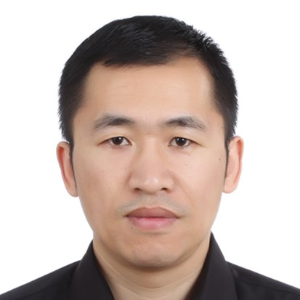Title : The synthesis and modification of g-C3N4-based materials for photocatalytic applications
Abstract:
Photogenerated charge separation and migration is crucial for photocatalysis and thus how to enhance the charge migration efficiency attracts lots of attention. In this regard, based on the two substances with the same composition elements, C4N quantum dots /graphite-phase carbon nitride nanosheets assemblies (C4NQDs/g-C3N4NSs) were fabricated with different C4NQDs content through a simple self-assembly process (Figure 1a). Through this method, the C4NQDs was interacted with the C3N4NS tightly. The photocatalytic hydrogen production of the optimized C4NQDs/C3N4NSs assembly was up to 1980 μmol·g-1·h-1 and the apparent quantum yield (AQY) could reach 32% at 365 nm, which is two times higher than that of original g-C3N4 nanosheet (Figure 1b). It can be ascribed to the strong electron absorption activity of pyrazine nitrogen in C4N quantum dots activating the conjugated structure of the whole complex skeleton and thus promoting the migration and separation of photogenerated charge carriers. More importantly, the obtained C4NQDs/C3N4NSs assembly showed high stability even after 6 recycles, indicating the potential applications in field of energy. This work provides an effective synthesis strategy of organic homogeneous structure assembly with high photocatalytic performance.



